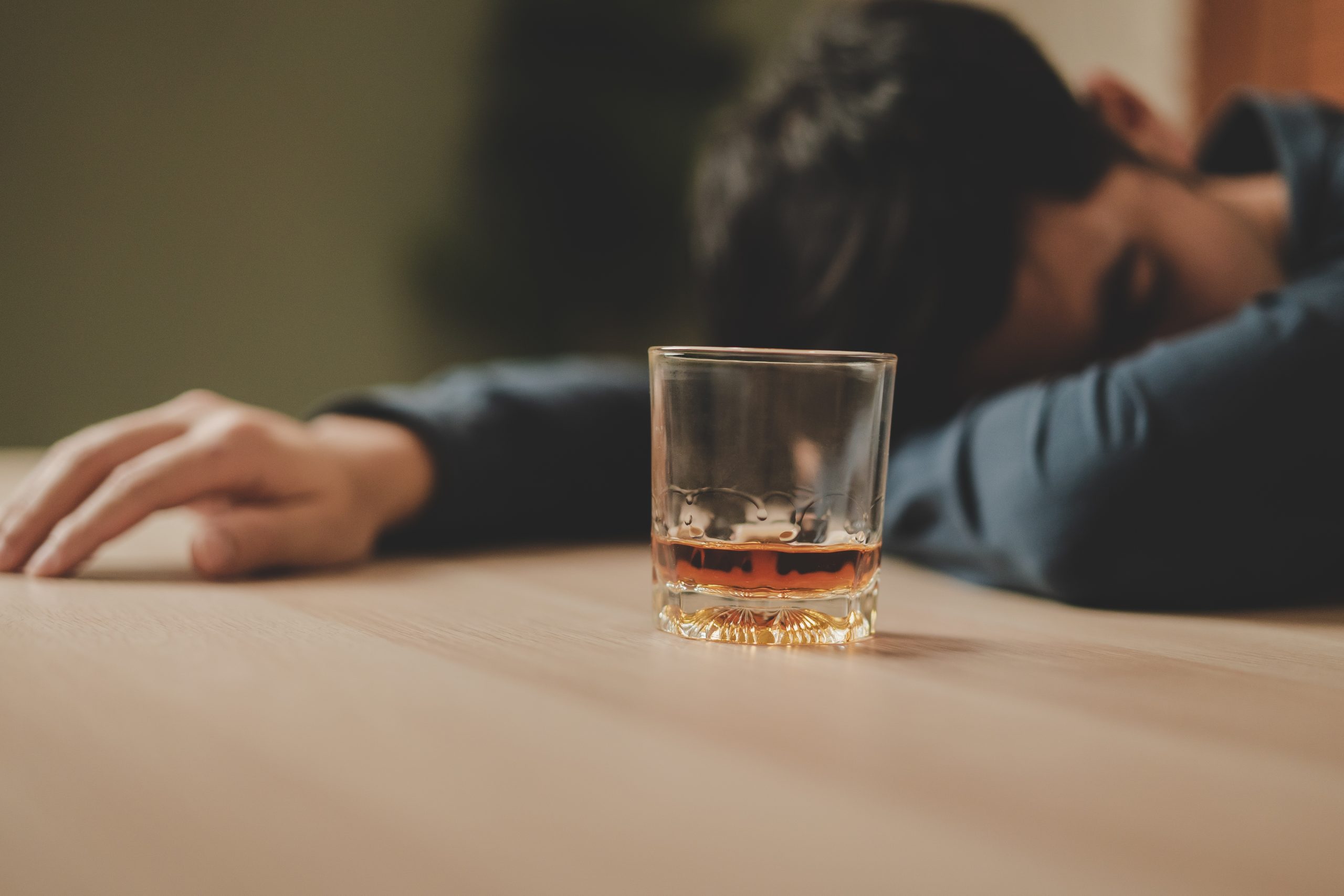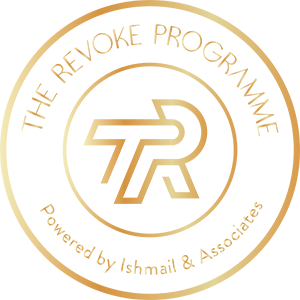If you have developed an alcohol addiction, recognising that you have a problem is the first step toward getting help and beginning your recovery journey. This blog outlines seven signs to look out for if you think you might be addicted to alcohol.
What Is Alcohol Addiction?
Alcohol addiction, or alcoholism, happens when you compulsively seek or use alcohol despite negative consequences. It is a severe form of alcohol use disorder, a mental health disorder that encompasses problematic drinking habits.
Alcohol is one of the most easily accessible drugs – anyone over the age of eighteen can legally buy and drink alcohol. Its widespread availability means there is a huge capacity for abuse. Alcohol Change estimates that over 600,000 people in the UK may be dependent on alcohol, and in 2020 over 7000 people died from alcohol-related causes.
Research shows that up to 80% of people struggling with alcohol abuse may not be accessing professional support. However, alcohol addiction is treatable, and with the right support, recovery is possible for anyone.
What Is the Difference Between Alcohol Abuse, Addiction, and Dependence?
While alcohol abuse, addiction, and dependence are all related, they are three distinct concepts.
- Alcohol abuse refers to any unhealthy drinking habits
- Alcohol dependence is when your body relies on alcohol to function properly. If you suddenly stop drinking, you typically experience a series of withdrawal symptoms as your body readjusts
- Alcohol addiction is a distinct psychological and behavioural condition where you compulsively seek alcohol. While alcohol dependence often leads to addiction, it is possible to be dependent on alcohol without being addicted
What Are the Signs of Alcohol Addiction?
It can be difficult to tell if you have developed an alcohol addiction. If you are worried about your drinking, it is important to seek the advice of a medical professional.
Here are seven possible signs of alcohol addiction.
1. Excessive Drinking
One of the clearest warning signs of alcohol addiction is, quite simply, drinking a lot of alcohol. Whether you have been drinking heavily for a while or have recently increased your alcohol consumption, excessive drinking is a telltale sign of an alcohol abuse problem.
Excessive drinking may involve heavy drinking, binge drinking, or both:
- Heavy drinking is when you drink more than the recommended levels of alcohol
- Binge drinking is when you drink a lot of alcohol in a short space of time to get drunk
While excessive drinking does not necessarily mean you have an alcohol addiction, the more you drink, the more likely you are to develop one. If you find yourself drinking alcohol too often or in too high quantities, it may be a good idea to seek support.
2. Impaired Control Over Alcohol Use
When you drink alcohol, it affects the reward pathway in your brain. The reward pathway is designed to reinforce life-preserving behaviours, like eating or sex, so that we enjoy these activities and want to do them again.
Usually, when we engage in life-preserving behaviours, our brain releases a small amount of the chemical dopamine. Dopamine makes you feel good and motivated to repeat the behaviour.
Drinking alcohol hijacks the reward pathway, flooding the brain with dopamine. Repeated drinking can lead to urges to use alcohol that are much stronger than we usually experience.
These urges can be very difficult to resist, and you may find yourself drinking even when you don’t want to. You may feel like you have lost control over your alcohol use. You are more likely to experience these urges in response to certain triggers, like visiting a place you often go drinking.
Loss of control over alcohol can manifest in different ways. You may find yourself:
- drinking for longer than you intend to
- consuming more alcohol than you intend to when you drink
- drinking more frequently than you want to
- drinking on inappropriate occasions
3. Prioritizing Alcohol in Your Life
When you develop an alcohol addiction, alcohol begins to become a priority in your life. You devote a lot of time and thought to acquiring alcohol, drinking alcohol, and recovering from alcohol abuse.
You may begin to neglect other responsibilities as a result of your drinking problem. This could manifest in the following ways:
- Going to work late or missing days of work due to a hangover
- Spending less time with family members
- Spending less time with friends who don’t drink
- Neglecting to look after yourself – by eating poorly, losing out on sleep, or not taking exercise

4. Experiencing Unwanted Physical and Mental Effects From Drinking
With alcohol dependence, you will usually experience a series of alcohol withdrawal symptoms if you stop drinking. These symptoms can appear from 6 hours after your last drink. Initial symptoms may include:
- Anxiety
- Shaky hands
- Headache
- Nausea
- Vomiting
- Insomnia
- Sweating
If you experience any of these symptoms, or you find yourself drinking more alcohol to avoid them, you may have alcohol dependence. In this case, it is important not to try and quit alone. Contact a health professional to ensure you withdraw from alcohol safely.
5. Alcohol Affects Your Physical Health
When you are addicted to alcohol, you continue to drink despite negative consequences, including physical health problems.
Alcohol is toxic, and abusing alcohol can lead to a variety of illnesses and health complications. These include:
- High blood pressure
- Stroke
- Heart disease
- Liver disease
- Digestive issues
- Some cancers, including of the breast, mouth, and throat
While these health problems may seem scary, stopping drinking drastically reduces the chance of developing them – the sooner you stop the better. Professional treatment centres can help anyone recover from addiction in order to live a full and healthy life.
6. Using Alcohol As a Coping Mechanism
With healthy, causal drinking habits, you drink because you enjoy it. Maybe you like the taste, enjoy the social aspect, or like the celebratory feel.
On the other hand, using alcohol as a coping mechanism for other mental health disorders is a symptom of an alcohol use disorder. You may become reliant on alcohol to cope with difficult situations or emotional distress, leading to increased alcohol use. In the long run, alcohol may exacerbate mental health issues, creating a destructive cycle of worsening mental health and alcohol abuse.
7. Alcohol is Damaging Your Relationships
If you are addicted to alcohol, you may start putting alcohol ahead of all other things – including your relationships. Research shows that drug addiction may lead to relationship dissatisfaction, instability, and verbal and physical aggression.
Alcohol can affect relationships in several ways, including:
- Dishonesty and Lack of Trust – You may hide alcohol from your partner or lie about where you’re going to try and keep your drinking problem secret
- Financial Stress – You may spend a significant fraction of your household income on alcohol, leading to financial difficulties
- Inappropriate Behaviour – When under the influence, you are more likely to act angrily, aggressively, or violently in situations
Alcohol Addiction Treatment
If you think you may be addicted to alcohol, it’s normal to feel scared. Alcohol addiction is a serious condition and recovery may seem a world away.
However, addiction is treatable, and no matter how severe the problem, anyone can benefit from some kind of treatment. Decades of scientific research have uncovered a range of evidence-based treatment options that can support you to overcome addiction and maintain abstinence.
Every individual is different and effective treatment programs are tailored to each client’s needs. Not every treatment works for everyone – you may need to try different approaches to find the one that is best for you.
Evidence-based treatment options include:
- Cognitive Behavioural Therapy – Cognitive behavioural therapy helps you to identify the underlying causes of addiction and develop the skills to overcome them. It involves unpacking the thought and behavioural patterns that drive alcohol use and making them more positive. CBT therapy focuses on the present, supporting meaningful lifestyle changes in real-time.
- Group Therapy – Addiction recovery isn’t easy, and it helps to have a strong support network to get you through difficult times. Group therapy sessions help you develop interpersonal skills that lay the foundations for strong mutual bonds. They are guided by a professional therapist who is trained in addiction recovery.
- Support Groups – Self-organised support groups like Alcoholics Anonymous (AA) are a place to meet with other people in recovery. They are a chance to share advice, offer encouragement, and find comfort in a shared experience. AA meetings are free and open to all, providing a long-term lifeline of support for people recovering from alcohol abuse and alcoholism.
The Revoke Programme
The Revoke Programme is an innovative service offering expert-led, evidence-based mental and behavioural healthcare. We understand that not everyone can pause their lives to attend treatment – our outpatient programs allow you to continue balancing work and home responsibilities as you recover from addiction.
Our programs combine peer and therapeutic support in custom packages for every client. You will work one-on-one with our experienced team to pursue the best treatment process for you.
If you are concerned about your drinking habits, contact us today. We are here to help you become the best version of yourself and reach your full potential.



